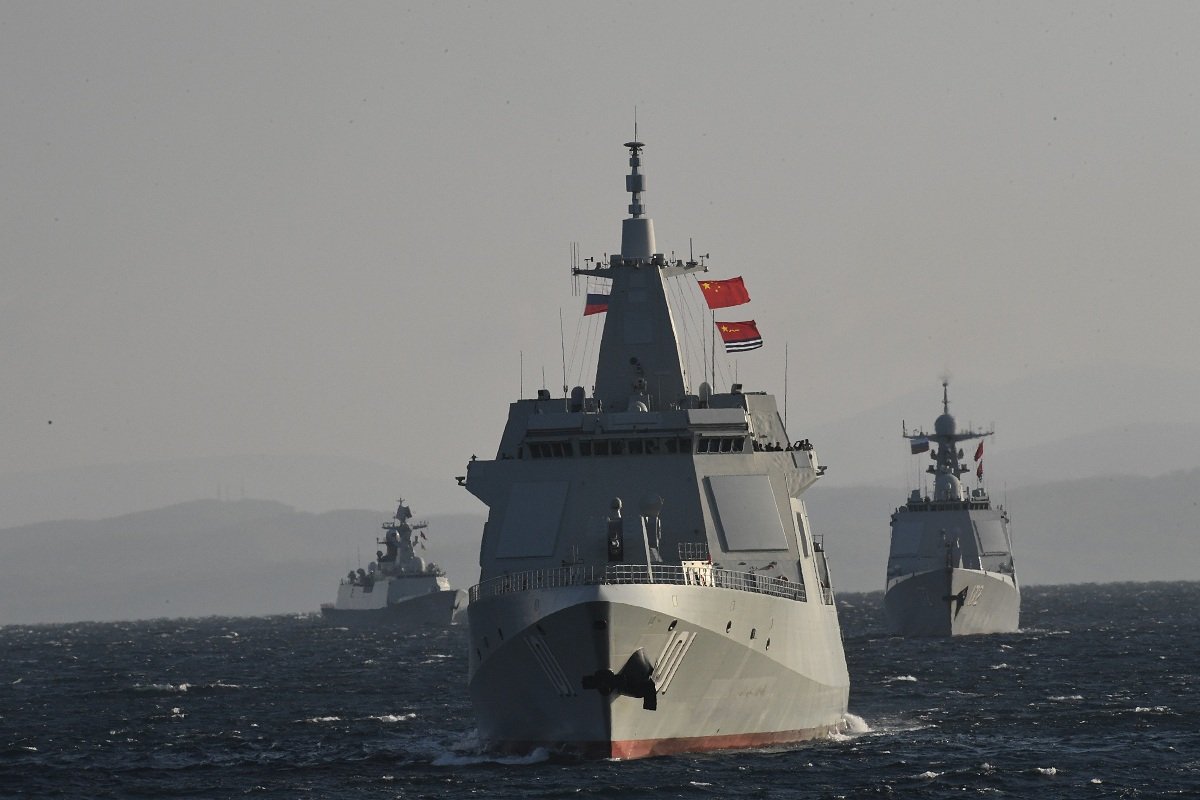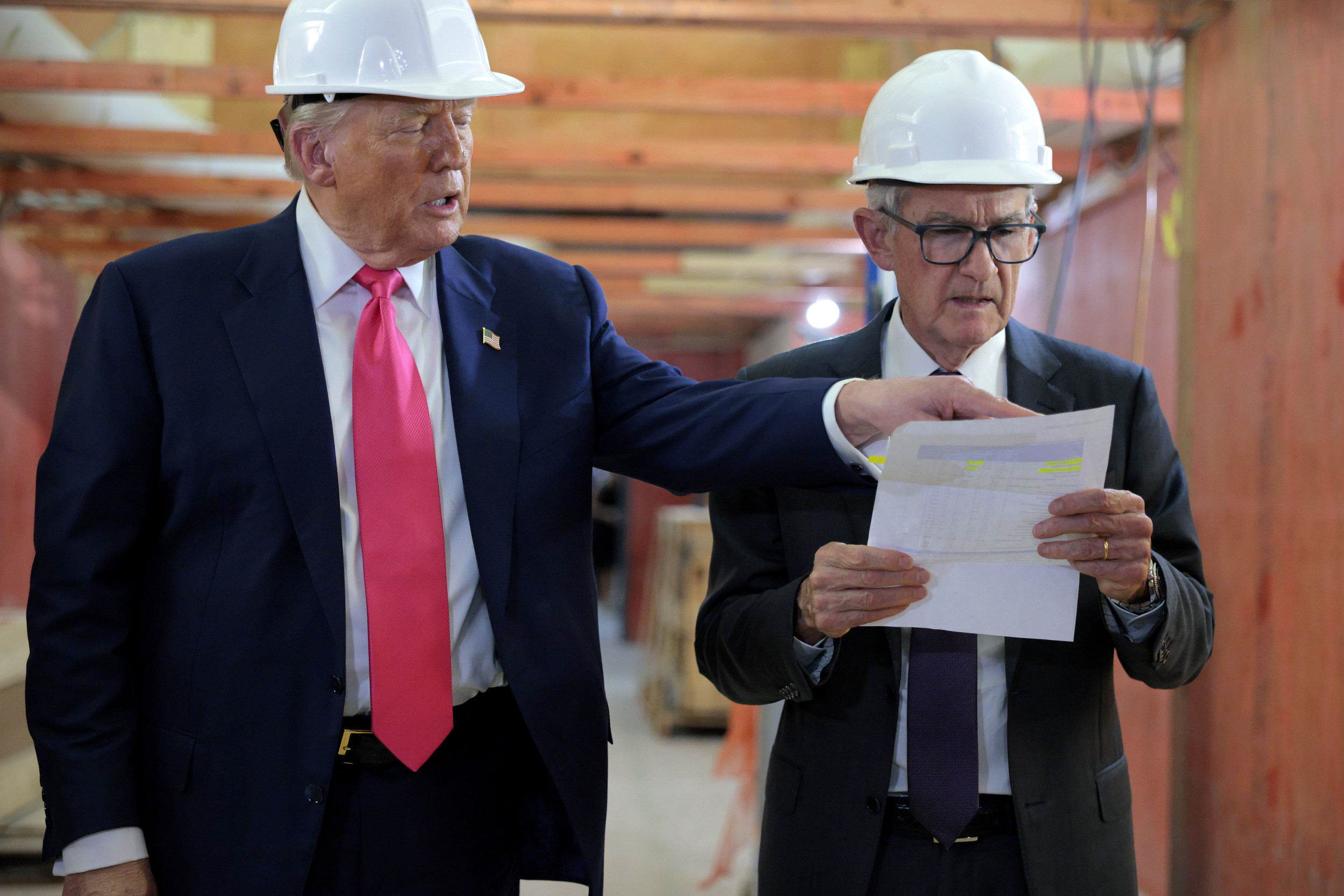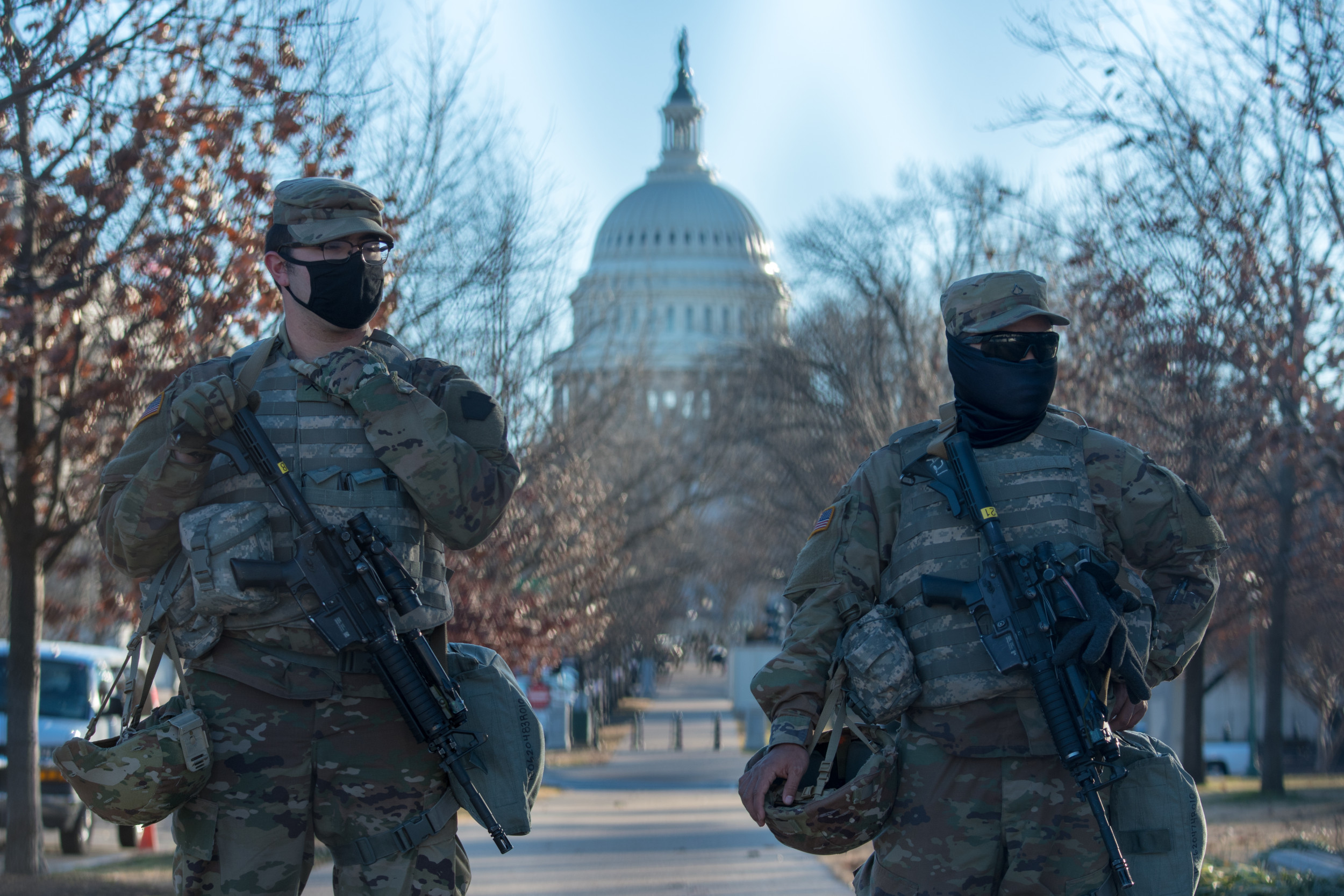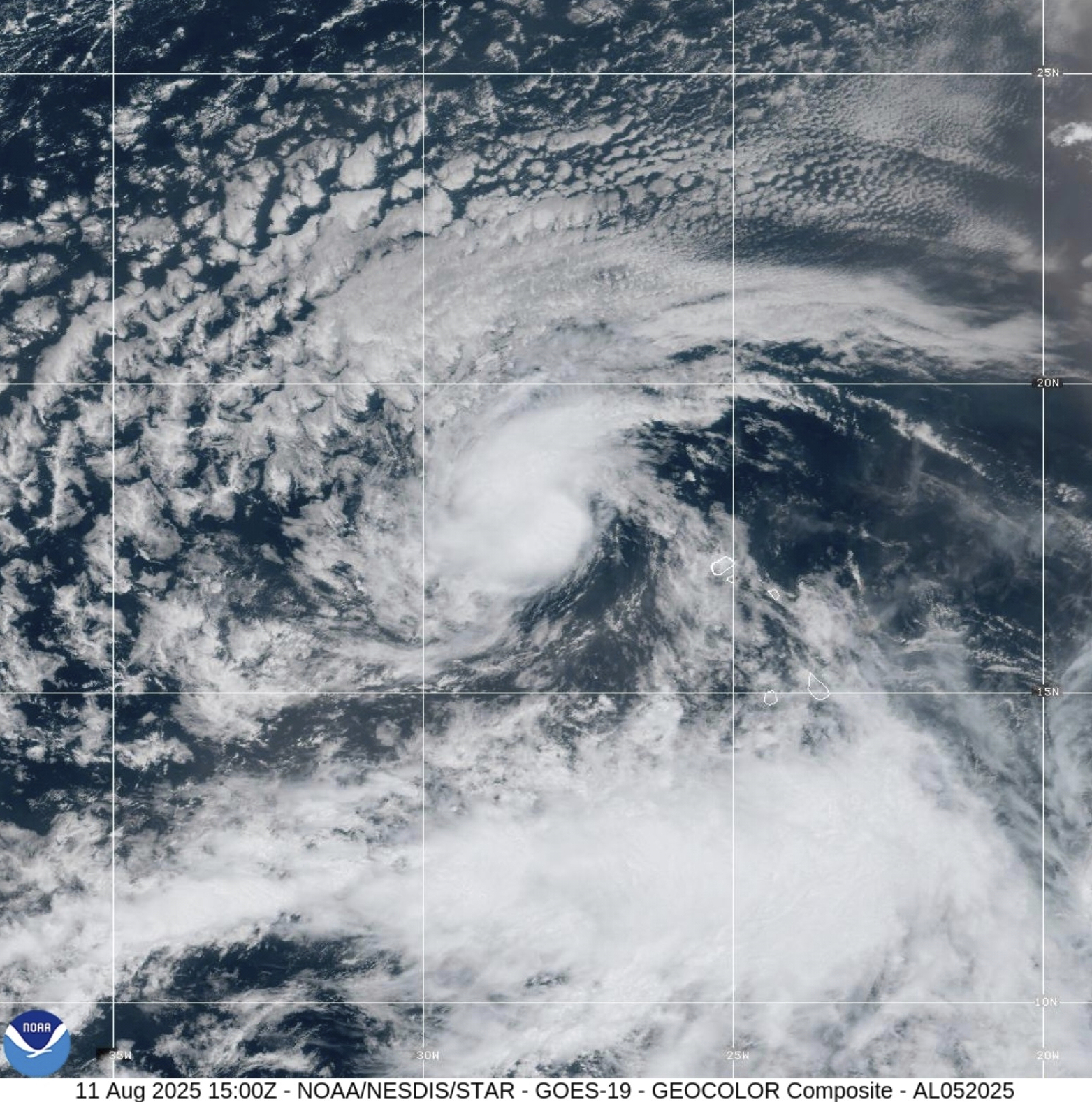🎙️ Voice is AI-generated. Inconsistencies may occur.
China and Russia have separately condemned what they see as destabilizing U.S. military moves near their respective borders, and have jointly called for intensifying their already growing strategic partnership.
In a statement published Tuesday by the Chinese Defense Ministry, People's Liberation Army Eastern Theater Command spokesperson Senior Colonel Shi Yi slammed the passage of the U.S. Navy's Arleigh Burke-class guided-missile destroyer USS Milius through the Taiwan Strait that separates the Chinese mainland from the self-ruling island claimed by the central government in Beijing.
"This action of the U.S. side created security risks and undermined regional stability," Shi said. "The troops of the PLA Eastern Theater Command will take all measures necessary to resolutely counter all threats and provocations and safeguard China's national sovereignty and territorial integrity," the spokesperson stressed in the statement.
Washington broke off relations with the Taipei government in 1979 in favor of Beijing, but has maintained unofficial ties that have warmed in recent years as relations with Beijing soured.
The U.S. Fifth Fleet asserted in a statement that the USS Milius passed "through international waters in accordance with international law," but a protest to the latest U.S. move was also issued by Chinese Foreign Ministry spokesperson Zhao Lijian during a press conference.
"The Chinese side was closely following and fully aware of the U.S. military vessel's passage through the Taiwan Strait," Zhao said. "The U.S. warships have repeatedly flexed muscles, made provocations and stirred up trouble in the Taiwan Strait in the name of 'freedom of navigation.' This is by no means commitment to freedom and openness, but rather deliberate disruption and sabotage of regional peace and stability. The international community sees this plainly."
He warned that "China is firmly resolved in upholding national sovereignty and territorial integrity," and urged that "the U.S. side should immediately correct its mistakes, stop making provocations, challenging the bottom line and playing with fire, and play a more constructive role in regional peace and stability."
That same day, Russia's military chief also identified what he viewed as dangerous U.S. moves near his country's national boundaries.
"We note a significant intensification of the actions of American strategic bomber aviation near the borders of Russia," Russian Defense Minister Sergei Shoigu said during a video conference with his Chinese counterpart Colonel General Wei Fenghe. "Over the past month, about 30 sorties were made to the borders of the Russian Federation, which is 2.5 times more than in the corresponding period last year."
These actions included this month's Global Thunder exercise in which Shoigu said that "10 strategic bombers practiced the option of using nuclear weapons against Russia practically simultaneously from the Western and Eastern directions."

The Russian official noted that such actions also posed a threat to China and emphasized that the relationship between Moscow and Beijing had become even more crucial, given "increasing geopolitical turbulence and increasing conflict potential in different parts of the world."
Wei was said to have credited Shoigu with successfully defying Washington, saying, "You've successfully countered the pressure and deterrence from the U.S., as well as military threats from the U.S.," according to the state-run Tass Russian News Agency.
Wei also drew parallels between the U.S. approach to their two countries.
"Comrade Minister just spoke about military threats, pressure and deterrence against Russia from the U.S.. The U.S. also takes such actions against China as well. I completely agree with your assessments," the Chinese official said.
Wei took note of the fact that this year marked the 20th anniversary of the two countries' Treaty of Good-Neighborliness and Friendly Cooperation, a pact that was extended over the summer by Xi and Putin.
"And we are celebrating tremendously fruitful cooperation in all areas," Wei said. "Especially, standing in the face of frantic US containment and pressure, China and Russia are united together like a great mountain. Our friendship is unbreakable. Together, we countered the hegemony of the US, and we oppose the fake democratic regime of the US, the fake multi-culturalism, as well as new forms of manifestation of the Cold War. Therefore, we've displayed our relations as being better than allied."
He said he "completely agrees" with Shoigu's "high appreciation of the level of Sino-Russian military cooperation," as well as his Russian counterpart's "view of the military threat for our countries from the United States."
The importance of the relationship was also noted in a readout of the conversation released Tuesday by the Chinese Ministry of National Defense.
"The defense ministers of the two countries agreed that under the strategic guidance of President Xi Jinping and President Vladimir Putin, the China-Russia comprehensive strategic partnership of coordination in the new era will maintain a high level of development," the account recalled. "This year, pragmatic cooperation between the Chinese and Russian armed forces in various fields has been intensified."
"In particular," it added, "new breakthroughs and new developments have been achieved in the field of joint exercises."
The two countries have waged a number of bilateral and multinational drills together, including the Zapad (Sibu)/Interaction 2021 in August, the Peace Mission 2022 under the auspices of their Shanghai Cooperation Organization in September, and joint patrols in the Pacific Ocean last month and earlier this month.
Both Wei and Shoigu were reported Tuesday to have said that "China and Russia are united like a mountain and their friendship is unbreakable."
"They will work together to fully implement the important consensus of the two heads of state, continue to deepen the strategic cooperation between the two militaries, and continue to strengthen cooperation in the fields of strategic exercises and joint patrols in order to defend the core interests of China and Russia," the Chinese readout said, "maintaining international and regional security and stability continuing to make new contributions."
A similar statement was issued by the Russian Defense Ministry.
"The heads of the military departments stressed the inviolability of friendship and the strength of ties between Russia and China," the Russian side reported. "They reaffirmed their readiness to implement the agreements reached at the highest level and to expand contacts between the defense ministries of the Russian Federation and the People's Republic of China."
The two sides also signed a roadmap for further defense collaboration through 2025.
And, in what may lead to their first in-person meeting since the onset of the COVID-19 pandemic, Xi has invited Putin to attend the upcoming Winter Olympic Games set to begin February in Beijing.

Beyond the military-technical realm, other Sino-Russian initiatives were advancing, such as a joint lunar station. The project was one of several discussed during a committee hearing in the Federation Council, the upper house of Russia's parliament.
At the meeting, Federation Council chair Valentina Matviyenko warned that any attempt to disrupt Beijing and Moscow's cooperation would be doomed to fail.
"We believe that it's unacceptable to substitute universally recognized norms with rules that have been contrived by a small number of countries, based on short-term egotistical interests," Matviyenko said, according to Tass.
But as the two countries continue to bolster relations, Washington has lashed out at its leading competitors, accusing them of carrying out provocative actions and human rights abuses at home. President Joe Biden's administration has criticized Xi for regularly sending warplanes across Taiwan's claimed Air Defense Identification Zone and threatening to retake the island by force, and has expressed concern toward a buildup of Russian forces near the border with Ukraine, where insurgents aligned with Moscow have declared two separatist republics.
China has never renounced the option to take military action in order to bring Taiwan into Beijing's fold, and the situation has grown tense amid reports that the U.S. has quietly increased its troop presence on the island. Russia, for its part, has denied any plans to attack Ukraine, but has warned of signs that Kyiv's forces and those of NATO nations were gearing up for some sort of aggression.
"Military advisers and weapon systems are arriving there, not only from the United States, but also from other NATO countries," Kremlin spokesperson Dmitry Peskov said, according to Tass. "All this builds up tensions."
White House Press Secretary Jen Psaki told reporters on Monday that "high-level diplomacy is a priority" for Biden, both when it came to Putin and Xi. The U.S. leader has spoken three times with his Russian counterpart and met once for a bilateral summit in Geneva, while he has twice spoken via telephone with his Chinese counterpart and met once virtually for a conversation last week.
About the writer
Based in his hometown of Staten Island, New York City, Tom O'Connor is an award-winning Senior Writer of Foreign Policy ... Read more



